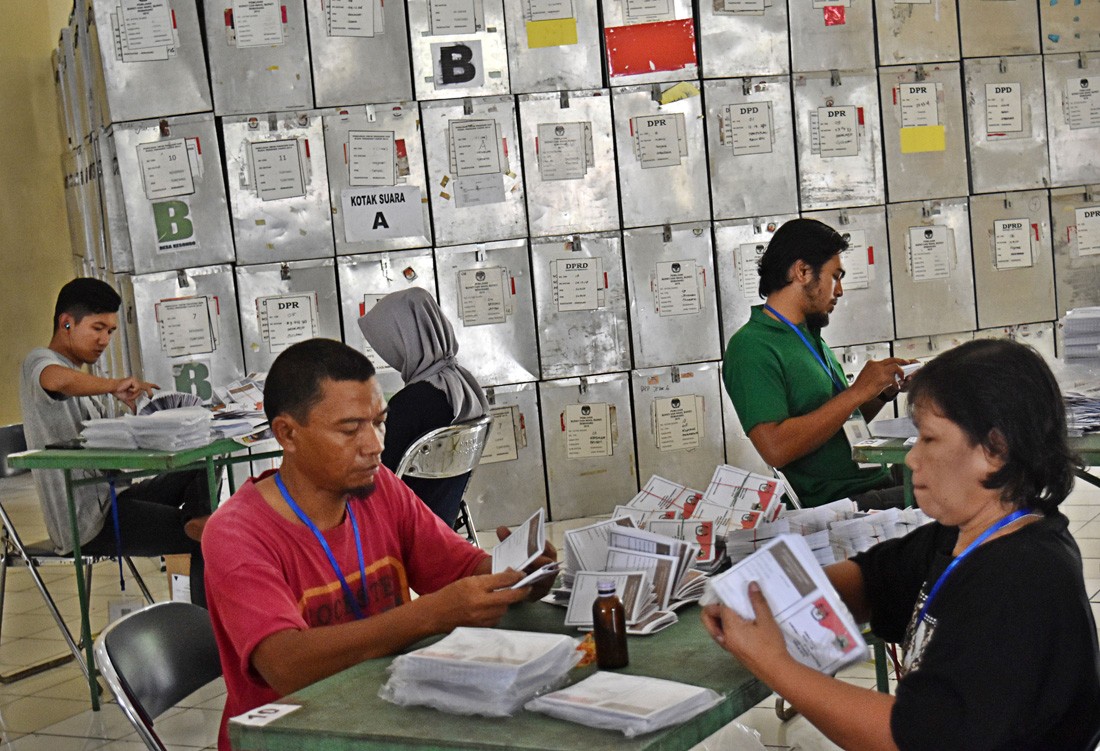Popular Reads
Top Results
Can't find what you're looking for?
View all search resultsPopular Reads
Top Results
Can't find what you're looking for?
View all search resultsVoting simulation for regional polls necessary amid pandemic: Central Java governor
Change text size
Gift Premium Articles
to Anyone
C
entral Java Governor Ganjar Pranowo has called on the General Elections Commission (KPU) to conduct voting simulation prior to the simultaneous regional elections on Dec. 9.
“Conducting a simulation is important to ensure voting procedures are prepared amid the pandemic,” Ganjar told The Jakarta Post on Friday.
He also emphasized the importance of arranging time slots for voting. “So people can take turns to vote, to avoid crowds [which could prompt COVID-19 transmission]."
On Dec. 9, Central Java will see voters in 21 out of its 35 cities and regencies elect new mayors and regents.
Ganjar said all participating cities and regencies were financially ready, but had yet to the procure protective equipment required for election officials as part of the health protocols prepared by the KPU to prevent virus transmission among officials, candidates and voters.
The simultaneous elections, which have been pushed back from Sept. 23 due to the outbreak, will see the election of 270 regional leaders across Indonesia, comprising nine governors, 224 regents and 37 mayors. The regions holding elections include Surabaya and 18 other cities and regencies in East Java, the province hit hardest by COVID-19.
Read also: KPU presses on with December elections despite turnout concerns
KPU commissioner I Dewa Kade Wiarsa Raka Sandi said the latest KPU regulation on health protocols had gone through a third review after being given the green light by the House of Representatives, and would made official soon.
He also said the KPU planned to hold both voting and vote counting simulations, though a schedule has yet to be set.
"A number of regions have informed us that they will conduct election simulations. Hopefully, after we issue the regulation, not only will we be able to start procuring personal protective equipment [PPE] such as face masks, face shields and gloves, but also encouraging all regions to conduct simulations,” Dewa said.
He said balloting times and procedures for polling stations and vote counting would follow physical distancing measures.
“We can’t talk about numbers because polling stations differ in size. The main thing is, the regulation of voter attendance will follow health protocols,” he said.
The KPU previously said that COVID-19 patients would be allowed to cast votes at designated voting stations at nearby hospitals after 12 p.m., or an hour before the voting booths close.
Read also: Vote buying threatens to undermine year-end elections: KPK
Furthermore, Dewa said that support from local administrations was needed for election preparations. “We need to intensify collaboration with health authorities and COVID-19 task forces in the regions set to hold elections,” he said.
For example, rapid antibody tests for election officials are among the required health protocols. However, the KPU does not have the authority to conduct the tests and therefore needs to team up with the local COVID-19 task forces and health agencies.
With the central government having begun to disburse Rp 941 billion (US$66.3 million) to KPU regional offices to procure health equipment, coordination between the KPU and regional administrations was essential to ensure the funds were used transparently, Dewa said.
Strict enforcement of health protocols, Dewa said, was the key to the success of this year’s elections. “The only way to prevent low voter turnout is to convince the public that it is safe to participate in the elections."










